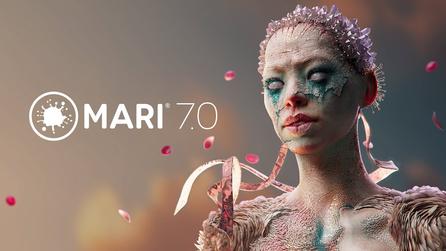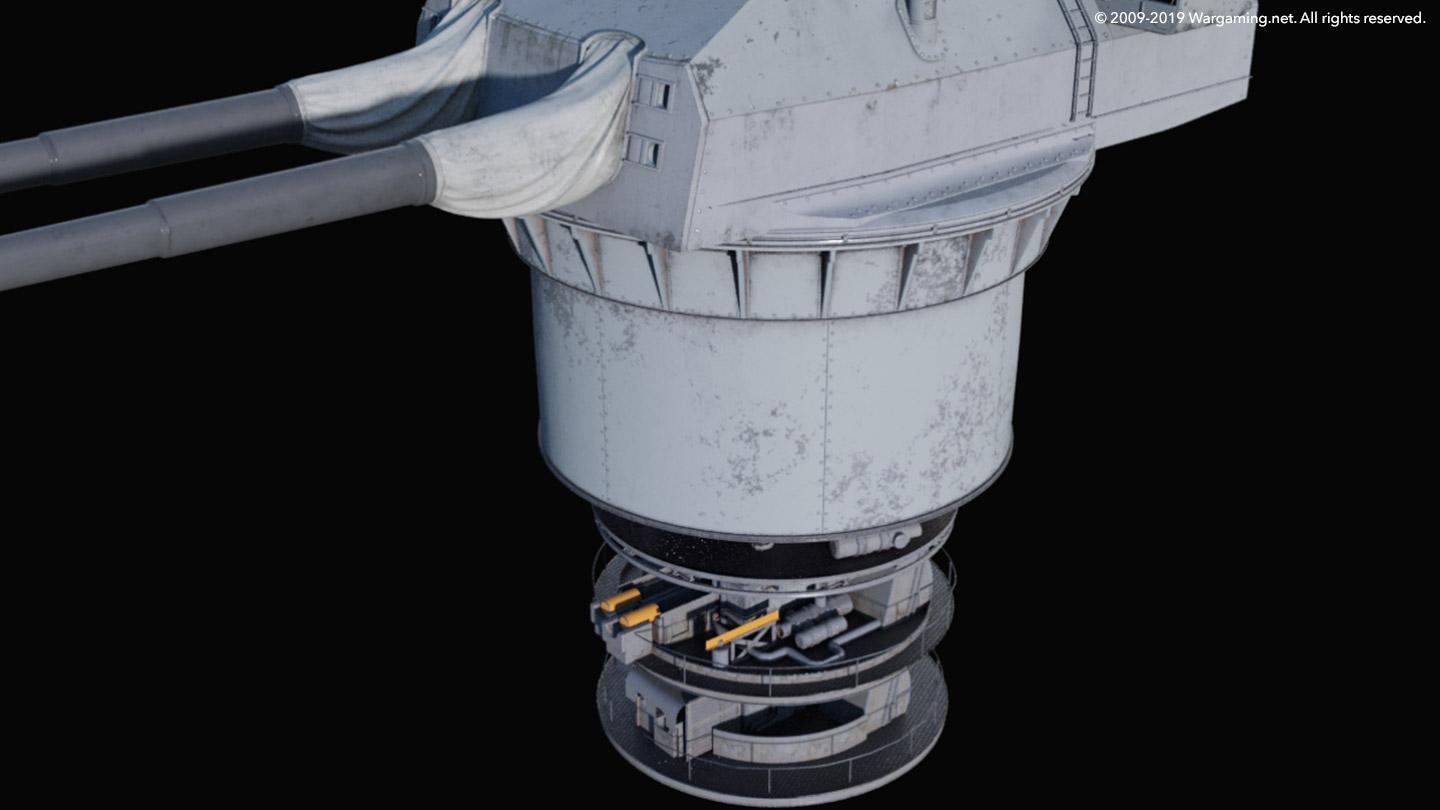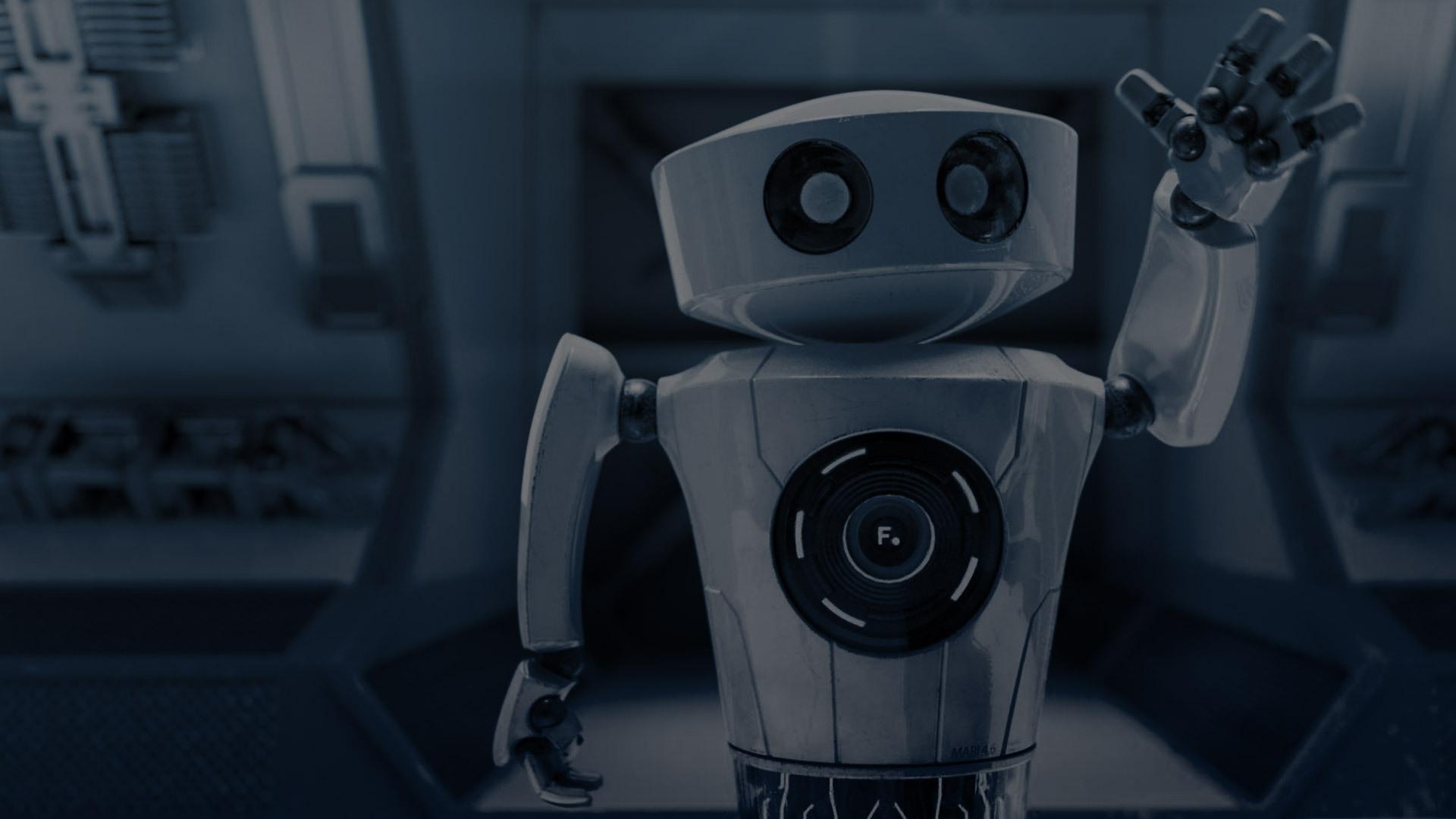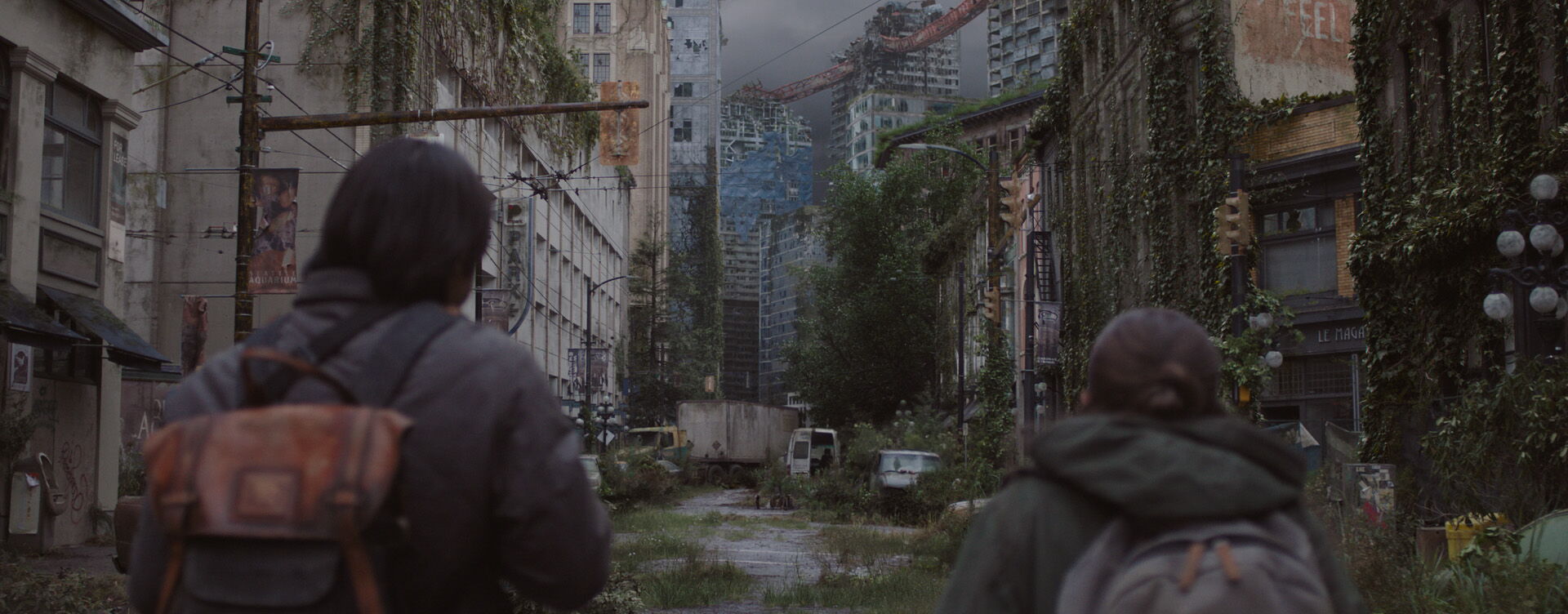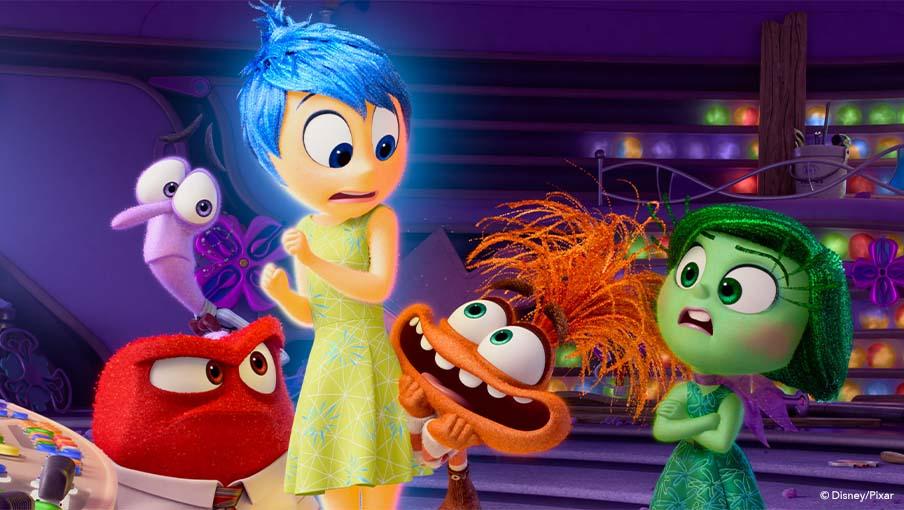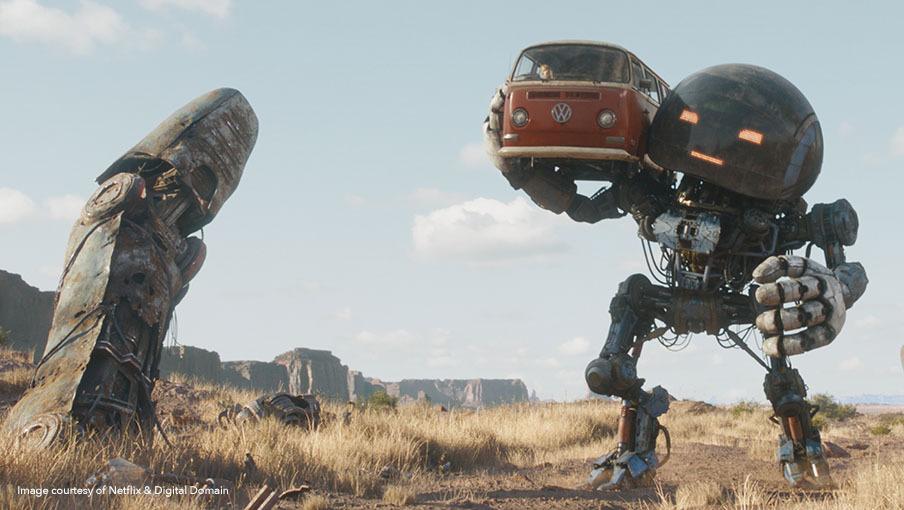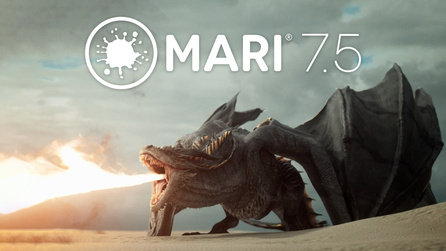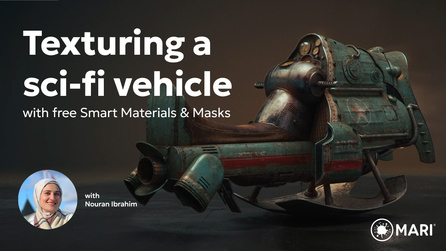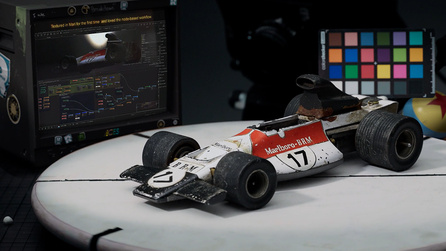Creativity without limits
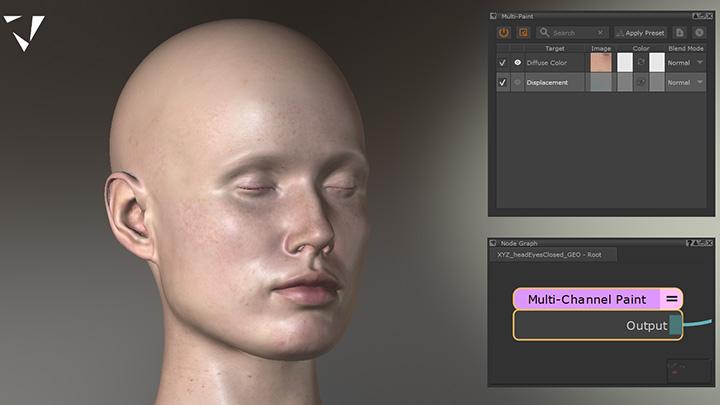
Multi-Paint Interface
A new interface enables artists to better control the color or image assigned to each individual stream during the painting process, for more flexibility and customizability.
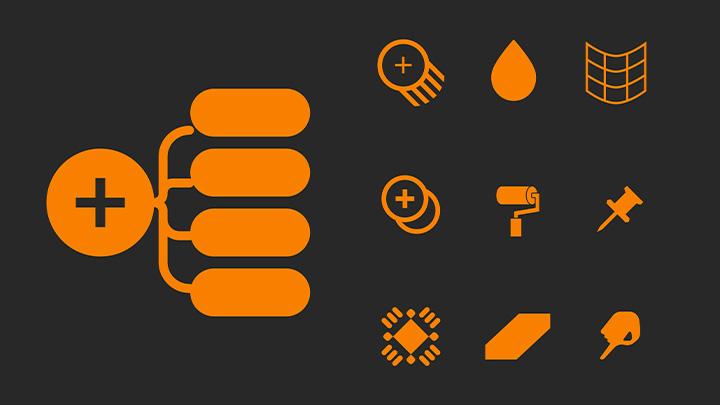
Updates to Mari's painting tools
Many of Mari’s painting tools have been updated to better support the multi-channel painting, including Select Tool Fill, Paint, Roller Brush, Blur, Paint Buffer Eraser, Paint Through and more — all without any change to the Mari user experience that artists know and love.
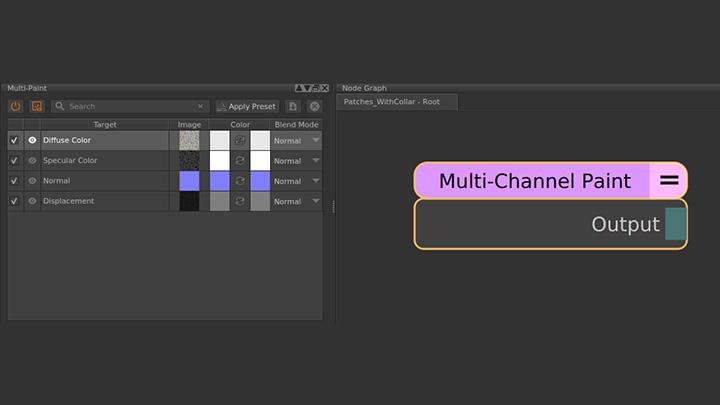
Multi-Channel Paint node
Lets you work with up to 8 streams at once, so you can paint with color, images, and roughness (and more!) — all at the same time.
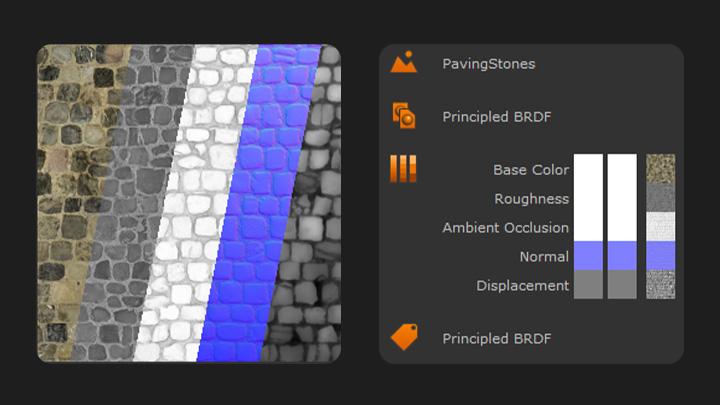
Multi-Paint presets
Enables artists to quickly store and re-use palette setups within the Shelf for easy reusability.
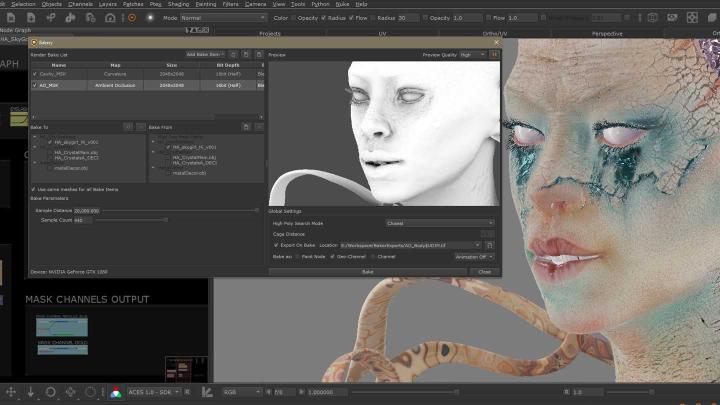
Bakery
Introducing the Bakery: Mari’s very own map baking engine. With the Bakery, Mari now has the complete set of tools to enable you to realize your creative vision. You can now create geometry maps, including curvatures and occlusions, without needing a separate application or plugin. With the ability to quickly bake maps for multiple objects at once across multiple UDIMs there’s no need to disrupt your artistic flow - no need to leave Mari.
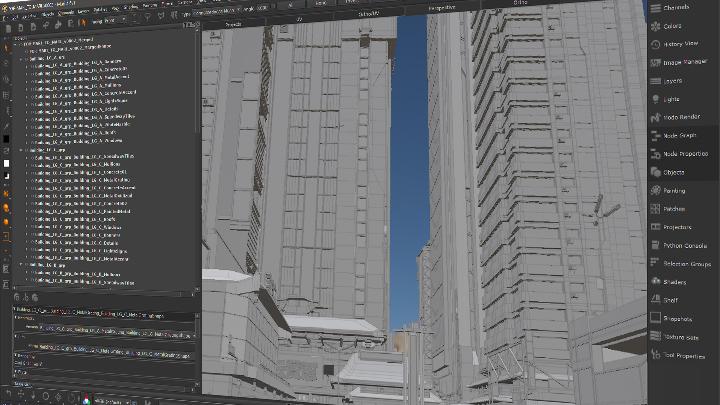
Complex geometry handling
With the ability to scale to over one million polygons for a single topology without slowing down, and handle animated geometry with ease, Mari can cope with the toughest production meshes. Mari can also support thousands of textures per model via UDIMs, each of up to 32K x 32K pixels, so you can create hyperrealistic assets with almost limitless detail.
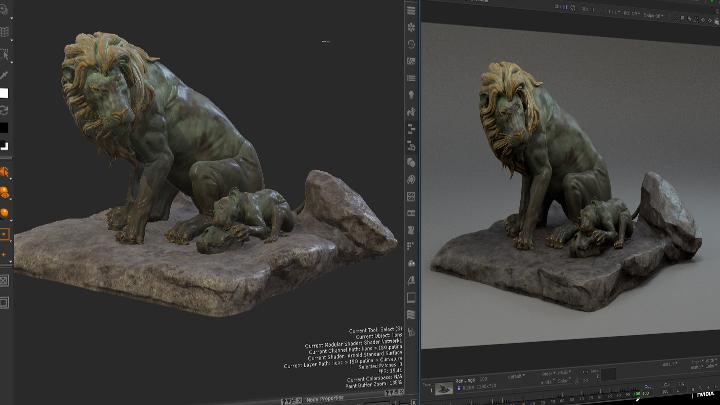
Streamlined look development
With Mari’s shaders, artists can paint textures in Mari with a higher confidence level knowing that their art will look correct in the final render. Working alongside render vendors we bring you four shaders: 3Delight, VRay, Unreal and Arnold, reducing the need to round-trip between Mari and Katana, and other DCC programs.
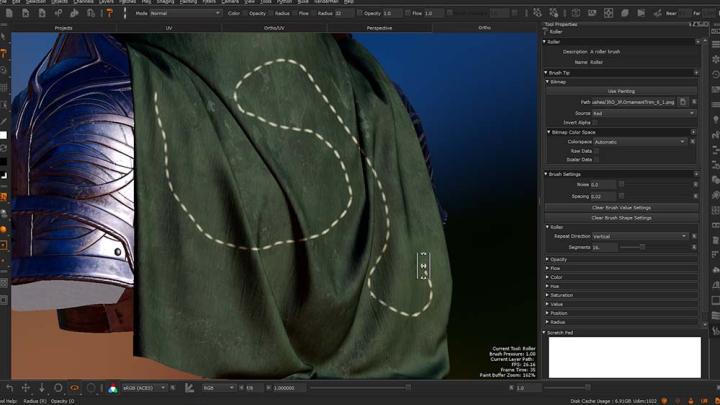
Roller brush
Introducing Roller Brush, a new painting mode that allows artists to paint a tileable image and follows the curves and direction of the brush stroke. Artists can create work with more flexibility and breakthrough limitations enabling them to work on stylistic animation projects and perfect the finer details i.e creating seams and decals on characters’ clothing with ease.
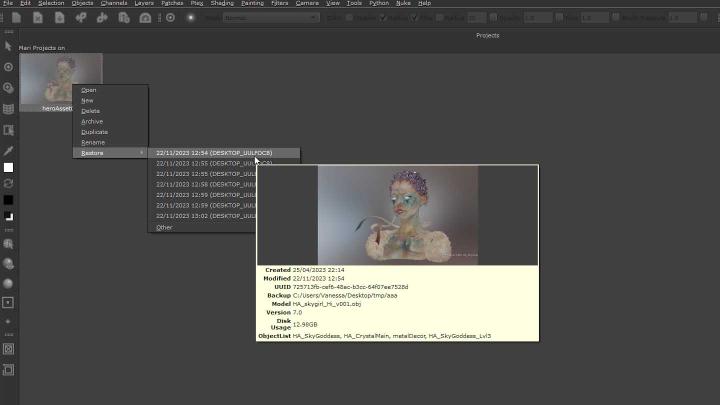
Automatic Project Backups
Save backups as you’re working so you can revert to any required state with the flexibility to choose where you want the backup saved. WIth the ability to add notes with the API you can easily navigate to the project iteration you received feedback on and develop from there.
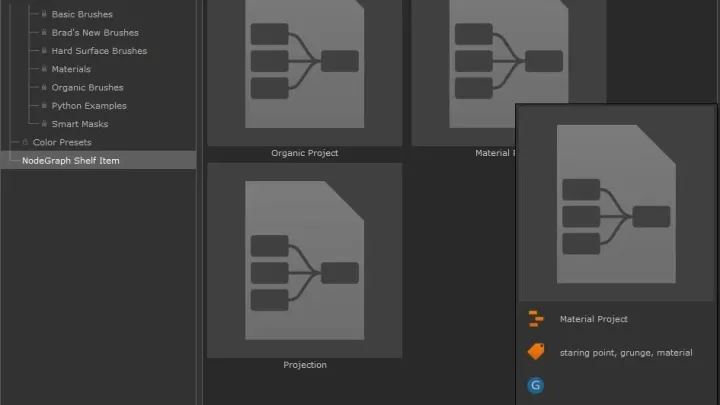
Node Graph UX
In Mari 7.1, we’ve improved the Node Graph to enhance the procedural user experience — meaning fewer clicks and better learnability. This includes the addition of Paint Node Creation Presets, Switch Node and, Save Nodes to Shelf Items — all designed to streamline your Mari experience.
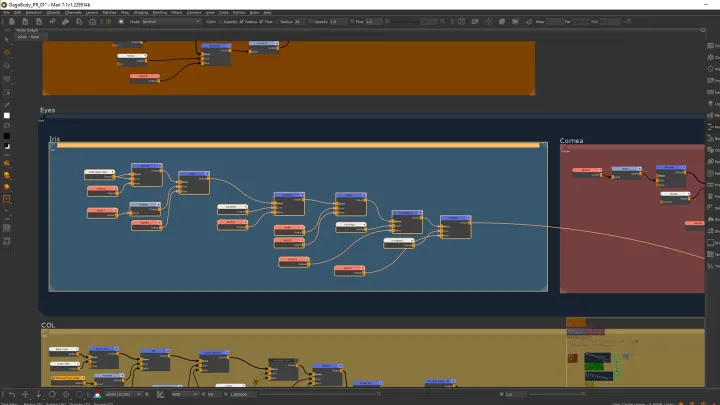
Backdrop Nodes
We’ve introduced Whole Backdrop Selection as part of our continued efforts to improve the node interaction experience. Now you can click anywhere within a Backdrop node to select the node and others contained within that area, improving your organization and saving you time.
Projection painting
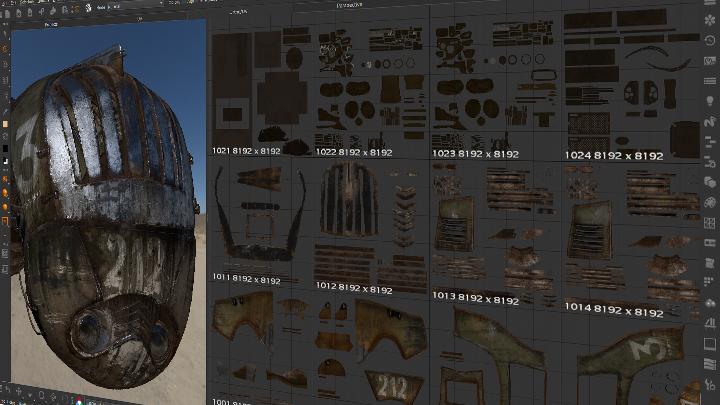
3D painting without limits
Mari frees artists from limits of resolution and complexity. With full support for UDIM workflows, you can work with hundreds of high-resolution texture maps as though they were a single tile. With Mari, the only limit is your imagination.
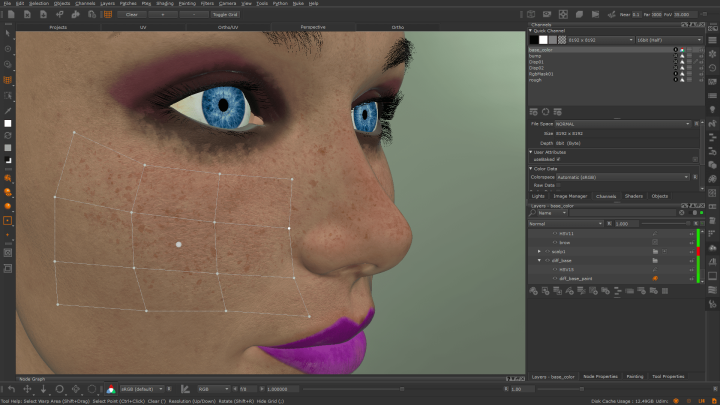
Projection painting
Don’t get locked down - Mari’s projection based painting system allows artists to make adjustments and edits to paint before committing it onto a model. Artists can paint on what feels like a virtual piece of glass, preview their paint in context with the whole asset, make 2D adjustments like warping, and all before baking it down across all texture maps.
Procedural workflows
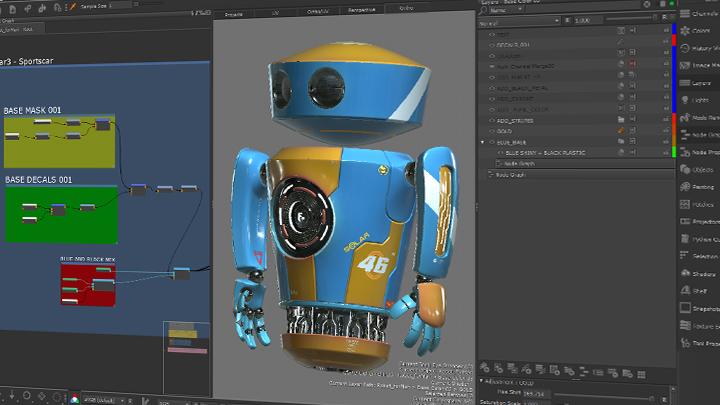
Nondestructive layer stack and node graph
Mari’s nondestructive layer system lets you freely mix paint with adjustment layers, procedurals and masks to build your shaders. Whether you’re working in the traditional layer stack, or making and editing connections directly in the node graph, you can reorder, add and delete layers at will; change blend modes at any time; and bake or flatten layers together.
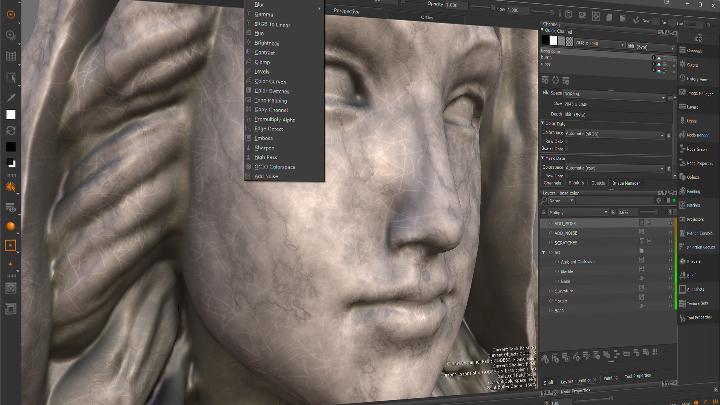
Procedurals, adjustment layers and masks
An extensive range of procedurals make it easy to create the look you want. Adjustment layers allow you to filter or color grade your painting nondestructively in real time. Control where paint is applied by painting a mask, using a procedural, or using surface attributes such as edges, depth, backface and even ambient occlusion.
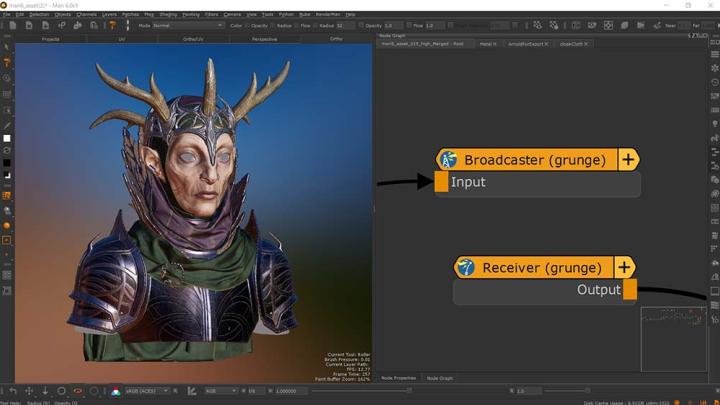
Teleport node
Experience better organization with the new teleport node. This is a node of two parts—broadcaster and receiver—that creates hidden connections so artists can easily organize their nodegraph, clean up networks and reduce excess clicks. The teleport node works inside and outside of nested groups and materials, and can be exported within a material whilst remembering which broadcast it's looking for. Artists can also jump quickly between broadcast and receiver to quickly navigate the nodegraph without needing to manually find nodes.
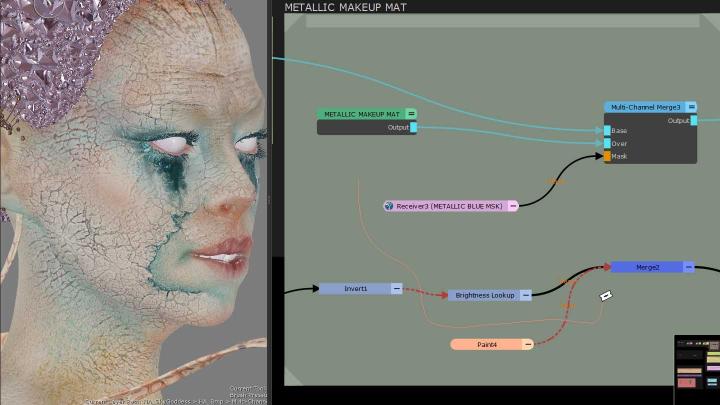
Artist experience improvements
We’ve made improvements to the Node Graph, optimizing how artists can work in it, whichever way they choose to. Artists can now sever connections and also shake to disconnect nodes— ensuring that Mari continues to evolve, with artists’ quality of life at the heart of it.
2D painting
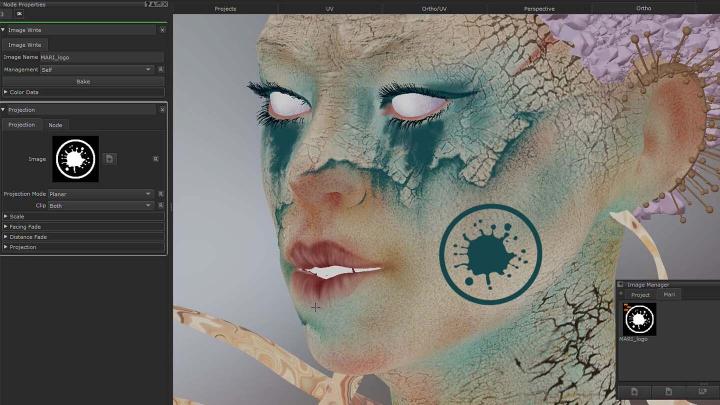
2D painting mode
Easily paint a 2D image with full Node Graph or Layer support to create decals or make edits for use in your texturing projects. Version 7.1 combines access to the full Mari functionality you love, like the paint buffer, Node Graph, and layer stack, with a powerful new 2D painting mode. Quickly bring any image into this new mode for painting 2D images and custom decals or clone out imperfections from reference images without disrupting your creative flow and needing to leave Mari.
Material system
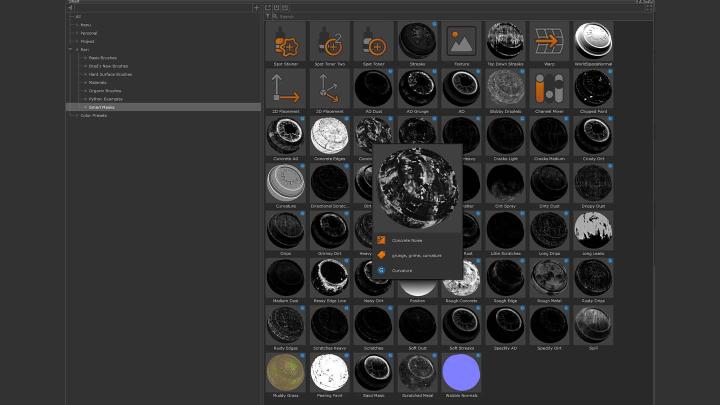
Additional content & assets
Get more out of the box with Mari thanks to more ready-made presets with a revamped Smart Mask Shelf (previously the Custom Procedurals Shelf), including more than 50 Smart Masks and utility nodes designed by industry professional Stuart Ansley, as well as Johnny Fehr’s grunge maps. These additional effects imitate a variety of different results, enabling you to bring life to your textures.
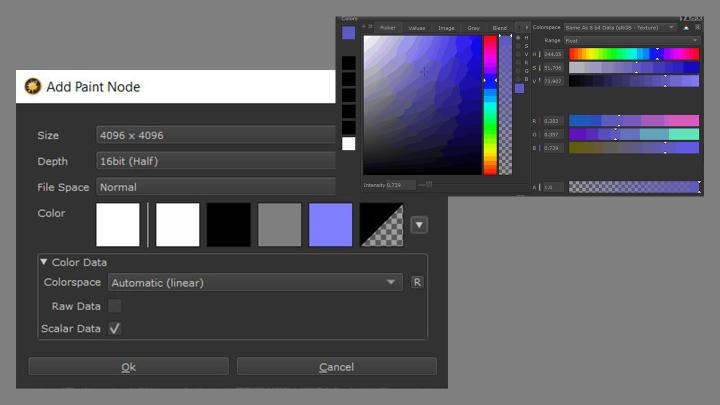
Paint Node creation presets
To improve the general user experience of the Node Graph, and remove excess clicks from the artist’s day, we’ve updated the Paint Node. Now, when creating a new Paint Node, you have the option to select from a batch of pre-selected swatches regularly used by artists or add your own swatches to the new Color Presets Shelf in the Paint Node creation list.
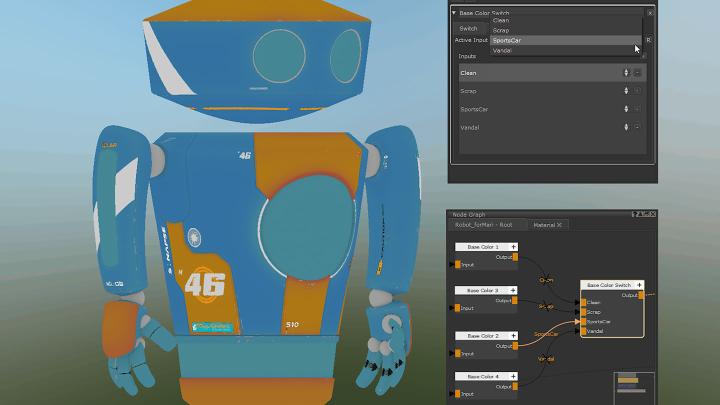
Switch Node
With Mari 7.1, you can export your material with different color variations, quickly switching between different looks for your textures by simply changing the input from the Switch Node’s Properties. This significantly improves performance, while enabling versatility when creating materials or smart masks.
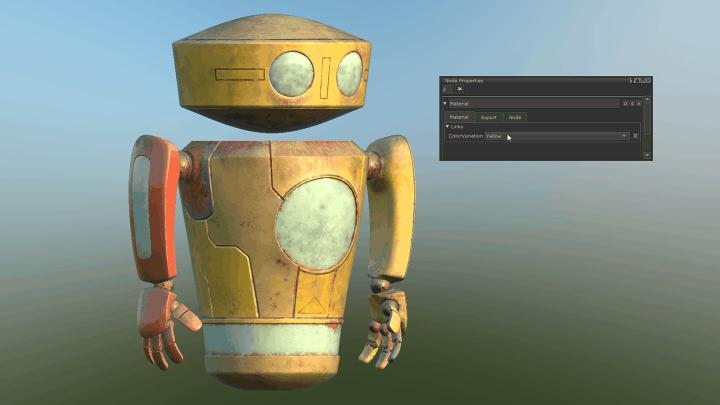
Save Nodes to Shelf Items
Artists can now export part of the project’s Node Graph as Node Packages. Similar to Materials and Smart Masks, Node Packages bundle up the Node Network, along with any source images, into a single file. This provides easier portability of premade Node Graphs between artists by removing the need to re-import images that cannot be found at their original paths.
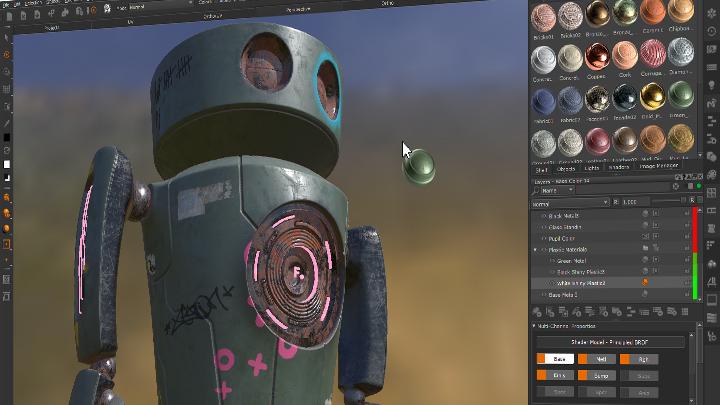
Design and apply presets in one application
Mari’s Materials System gives artists the ability to quickly and easily create less complex, higher-volume assets or lay down the building blocks for your hero asset. Mari’s workflow enables artists to rapidly block out the look of an asset using material presets, without having to start from scratch. Artists can then use all of the detail-painting power of Mari to weather and finish the final art direction, giving artists the best of both worlds in one application.
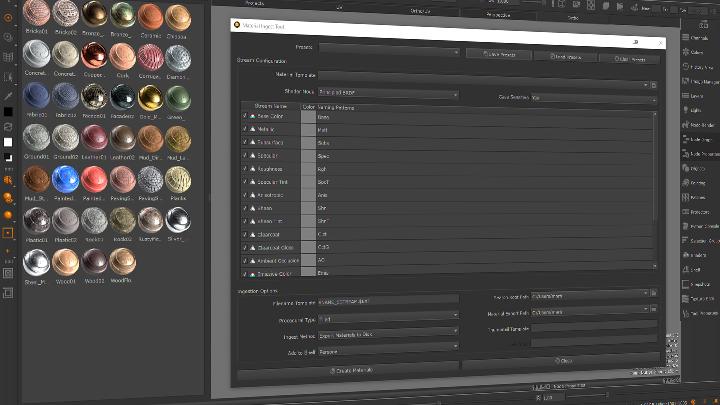
Ingest PBR texture sets
Mari allows artists to quickly import and convert any set of PBR texture maps into a Mari material preset. The Material Ingest Tool creates the presets, sets up the controls, and loads everything into the Mari shelf ready to use, allowing you to continually grow your material library. Artists can ingest thousands of PBR texture sets through Mari with ease.
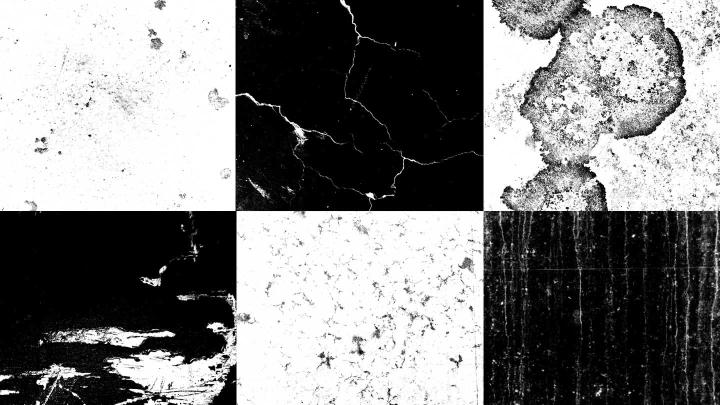
Shelf content
Artists now have an additional 60+ grunge maps, courtesy of Mari expert Johnny Fehr, bringing even more opportunities to hone and develop their texturing stories in their creations, faster than ever before. There are also further Python scripts and custom procedurals available to support your day-to-day artistry.
